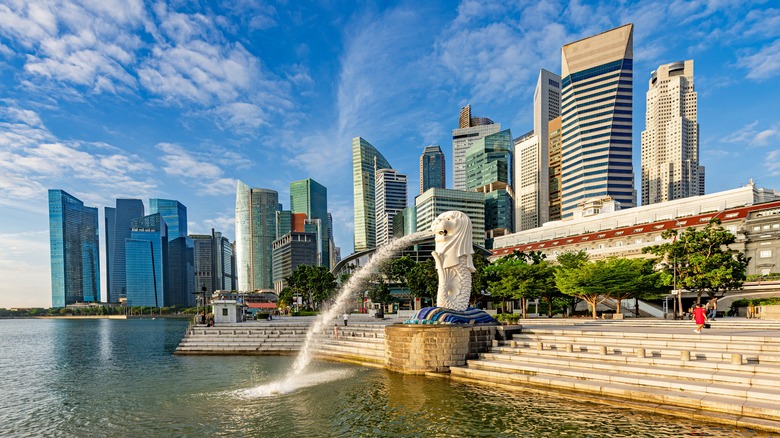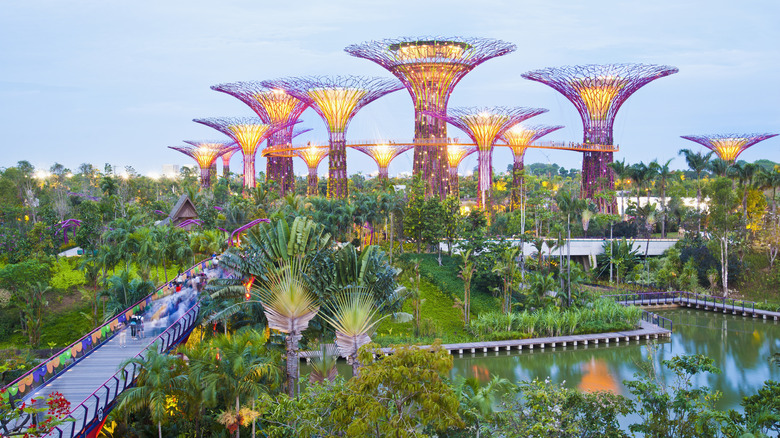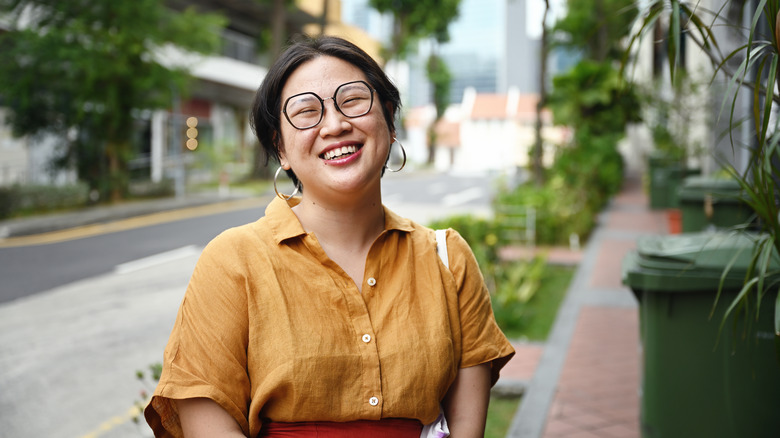An Unexpected Country Has Been Ranked As The World's Healthiest
According to several health indexes, Singapore has claimed the top spot as the world's healthiest country in 2024. Outranking much larger and more celebrated countries, the small Southeast Asian nation secured the coveted spot after being labeled a "Blue Zone" — aka, a country where its inhabitants grow to live longer, happier lives than the average worldwide population. If the country's penchant for walkability and healthier food is anything to go by, the title is well-deserved.
Located just off the southern tip of Malaysia, Singapore is a city-state known for its world-class airport — which is home to the world's largest indoor waterfall — as well as its modern skyline, strict laws (like one that bans chewing gum in public spaces), and being so incredibly safe that people aren't afraid to leave their valuables unattended.
With a land area of roughly 274 square miles, Singapore is one of the smallest countries in Asia. However, despite its size, the destination has become a global hub and a popular tourist destination — welcoming nearly 14 million visitors a year and cementing itself as the perfect blend of modern cityscapes and lush green spaces.
In Singapore, it's all about encouraging better habits
One of the key factors contributing to Singapore's ranking as the healthiest country in the world has to do with its urban design — specifically, its emphasis on creating a livable, green environment that boosts physical activity and mental well-being. In terms of green spaces, the country boasts an extensive network of parks and gardens — including the famous Gardens by the Bay Park and the Singapore Botanic Gardens, both of which provide residents (and visitors) with areas perfect for an outdoor workout. And if sweating it out isn't on the cards for some, these spaces are also the perfect place to find a moment of quiet relaxation amidst the hustle and bustle.
Additionally, Singapore's urban planning also works toward prioritizing walkability. The well-maintained sidewalks and pedestrian-friendly areas encourage people to move around by foot or bike. Plus, considering the fact that the local government also heavily taxes vehicles, fuel, and road use, it's no surprise that locals would much rather walk to their destinations or make use of local public transport instead. Something that rings especially true for locals hoping to find other ways to save while living in one of the most expensive countries in the world.
Other ways Singapore stays healthy
On top of its urban planning initiatives, Singapore is also doing everything it can to ensure that its citizens are eating and drinking well. Alongside initiatives to make nutritious foods more affordable and accessible than their ultra-processed counterparts, the country's Health Ministry has also unveiled a series of programs designed to educate and motivate people on how to make smarter food choices — even while they're enjoying a plate of street food or sipping on a fresh coffee at a hawker.
As for smoking in Singapore, you're going to want to think twice about even lighting one up. Singaporean cigarette packs are currently taxed at $0.33 per stick, as well as an additional 7% Goods and Services tax on every pack. This means a 20-pack could end up costing you upwards of $12 — much higher than the U.S. average of $8. Plus, considering that smoking is prohibited in most public spaces — including parks, transport nodes, local beaches, and anywhere else within 16 feet of a window or building entrance — there's no reason to try and sneak a puff (or hide out in a pre-approved "smoking corner") to get your fix.
Lastly, there's also the benefit of local access to universal health care, which ultimately means that Singaporeans can enjoy access to high-quality care that goes beyond treatment. Specifically, these services also include comprehensive efforts like prevention, early intervention, health promotion, and long-term care for people living with chronic conditions or disabilities.


